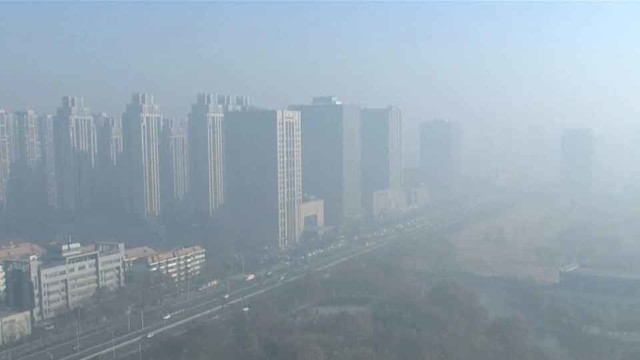Climate change is one of the many issues being discussed at the 19th CPC National Congress. New studies show China is on track to beat even its own deadlines for cutting carbon emissions linked to global warming.
CGTN’s Han Peng takes a look at the country’s leadership on the issue since the last Party Congress.
China burns four billion tons of coal each year, almost as much as the rest of the world combined. It also produces more gases linked to global warming than any other country, accounting for a quarter of the world’s total.
Addressing this issue in 2014, President Xi Jinping pledged that China’s carbon emissions’ would peak by 2030. But recent international studies show China’s carbon emissions could start to decline in 2025, five years earlier than promised.
Zhou Dadi is a senior researcher on China’s National Development and Reforms Committee, which is one of the most powerful bodies setting the country’s economic policies.
She says that up until now, no country has realized an economic growth rate of nearly seven percent, while also managing to cut down on carbon emissions.
“Most of the developed countries, although they already peaked their emission, their growth rate is just about two or three percent,” Zhou said.
Coal accounts for 2/3 of China’s energy supply, compared to clean energy sources producing 1/10.
But the country is trying to make coal burning more efficient. Last week in the midst of heavy smog in northern China, hundreds of coal plants were fined for breaking environmental rules and falsifying emissions data. The penalties total $47 million.
Officials say the inspections will continue.
“Coal consumption is very likely to be already peaked, or at least won’t increase a lot,” Zhou said. “The peak is not to say ‘OK, you are going to get rid of the coal.’ The issue is: do we need more coal like five billion tons, or we can keep on the four billion tons or in the future, even less?”
 CGTN America
CGTN America
